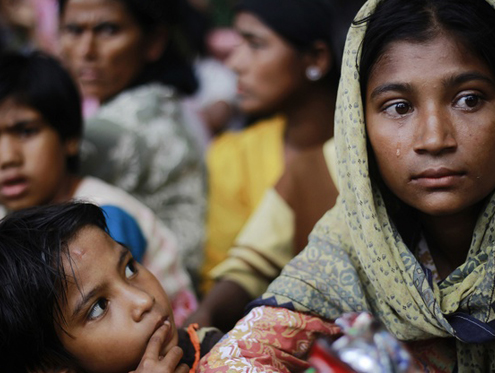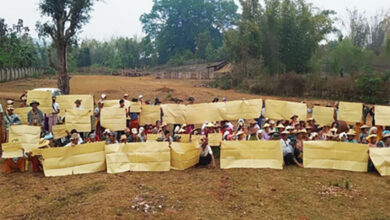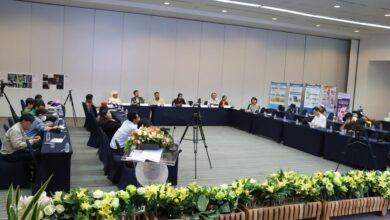Burma’s Citizenship Law ‘Fuels Repression,” says Human Rights Watch

The New York based Human Rights Watch called on the Burmese government to amend citizenship law, claiming it “fuels repression” and denies basic human rights to the country’s ethnic Rohingya minority.
Brad Adams, HRW’s Asia director, said the law entrenched discrimination and must be changed.
“Burma’s discriminatory citizenship law not only deprives Rohingya of citizenship, but for decades has encouraged systematic rights violations,” Mr. Adams said, “Amending the law to bring it in line with international standards is the first step for resolving this long-standing human rights abomination.”
Muslim Rohingya face persecution in Burma and are denied basic rights in law granted to full citizens. Violence between Arakanese Buddhists and Rohingya in 2012 led to killings and the destruction of homes, shops and mosques. The UN has estimated that more than 140,000 Rohingya remain internally displaced by the violence and as result are forced to live in squalid camps lacking in basic infrastructure and lacking medical supplies.
Human Rights Watch argues that the treatment of Rohingya is a crime against humanity.
Burma’s 1982 citizenship law fuelled sectarianism because it does not recognize the roughly 850,000 people in the country who consider themselves Rohingya, HRW said. The state claims that Rohingya should be classed as “Bengali,’ a classification which infers that they are foreigners.
Yet in spite of widespread international condemnation, the government has refused to back down by continuing to claim Rohingya’s don’t exist.
The government refused to recognise the term Rohingya in last year’s nationwide census, in spite of the fact that it was funded with $74 million in foreign aid. The move “concerned” the UN agency tasked with assisting the government in carrying out the census.
The United Nations Population Fund (UNFPA) said at the time that it was “deeply concerned” about the exclusion of the Rohingya from the census saying it was a “departure from international census standards, human rights principles and agreed procedures,” claiming that the government betrayed an “explicit agreement” to conduct the census in accordance with international standards by allowing Rohinga to identify their own ethnicity. Preliminary results released back in August last year estimated that perhaps as many as 1.09 million people were not counted.
Since then, details have emerged of Burmese authorities engaging in human trafficking rackets exporting Rohingya to other country’s in the region, notably Malaysia. A report by Fortify Rights, a human rights organization that monitors inconditions South East Asia, said officials from the navy, police and army, were colluding with criminal gangs and collecting payments of up to $7,000 USD from Rohingya wanting to leave.
“State security forces are complicit in and profiting from the increasingly lucrative maritime human trafficking and smuggling of Rohingya Muslims from Rakhine State.” Fortify Rights said in the report, “The vast majority of Rohingya who depart by sea soon find themselves in the custody of abusive human trafficking and smuggling gangs, who detain them in conditions of enslavement and exploitation.”
Mr. Adams, HRW’s Asia director said that government’s narrative of democratic political reform was marred by its treatment of Rohingya.
“The appalling treatment of the Rohingya is a major blight on the Burmese government’s efforts to bring human rights reform. Failing to redress the misery inflicted by government policies on the Rohingya is a recipe for prolonged repression,” Mr. Adams said.




